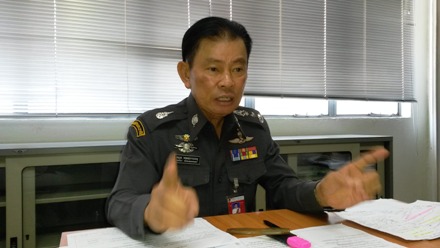A dove among the hawks in the Deep South
"I will open a centre to receive complaints...

They can call this centre to lodge the complaints and I will personally look at them. And if, one day, there is any area where there are no violent incidents or bombings, I will propose to the phuyai (those in power) to scrap the martial law in such area."
"2015 is the year of Asean Economic Community (AEC). There are people who are afraid of coming her and I feel ashamed of it. Meanwhile in Malaysia, the government asked its people to put up the Halal signs across the country and it has attracted over 500 million responses. But we don’t have any."
"Today, there must be no violence. Anyone who resort to violence without proper reasons must be able to answer to the society. If they cannot, they must be removed or transferred. They cannot be assigned to work in areas which have to connect with the people. They have to do other jobs."
The above were the remarks made on different occasions by Pol Lt-Gen AnurutKrisanakaraket, commander of the Southern Border Provinces Police Operations Centre. They reflect his standpoints regarding the unrest problem in the Deep South.
What officials assigned to the Deep South should do is "to understand the local people and not the other way round."
To understand the local people, he explained, is to understand their way of life, what they want or do not want and, more important, to enable them to participate in matters of their interest.
After 11 years since the start of renewed insurgency war by a new breed of insurgents, Pol Lt-Gen Anurut said that violence has not subsided because the problem was not resolved at the right source – that is the thoughts of the localpeople and the injustice which has not been addressed.
"That was why he apologized to the local people who felt they were not accorded the justice," said Pol Lt-Gen Anurut.
The first thing that he did when he assumed the office last October was to pay visits to the local people, to inspect the performance of his men and to offer apologies to the people.
He said that the three southernmost provinces were not a war zone and the police responsibilities were to serve the people and to look after their safety.
"We were not sent here to kill. Extra-judicial killings cannot be done without justification. We must accept their identity and way of life of the local people," he said.
With more than 30 years of working experiences in the region, Pol Lt-Gen Anurut is confident that he understands the problems in the restive region.
He listed his priorities for this year as follows: seeking cooperation from the people through the adoption of the Thung Yang Daeng model; to stop unjust or illegal arrests and to address the problem of disparity and injustice among others.
